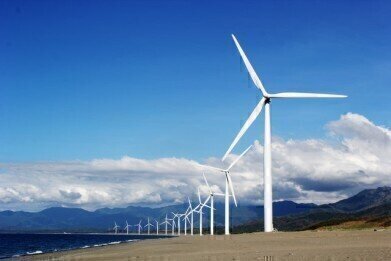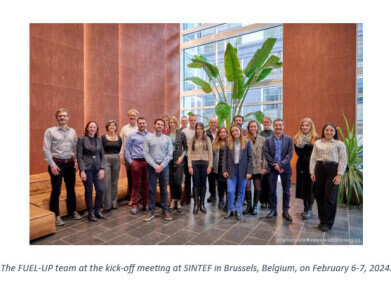Sustainable aviation fuel (SAF)
What Are the Characteristics of Alternative Fuels?
Aug 01 2022
From recreational vehicles to jumbo jets, alternative fuels will play a critical role in slashing global emissions and addressing the climate change crisis. The industry is continually growing and evolving, with exciting breakthroughs reimagining the potential of alternative fuels.
The characteristics of alternative fuels can vary enormously, though all share one core similarity – they are all alternatives to petroleum-based fuels. This means they’re derived from sources other than crude oil. Generally, alternative fuels are considered cleaner, greener and more ecofriendly.
The US Department of Energy currently recognises six core categories of alternative fuels:
-
Ethanol
Generally produced domestically using corn and other cellulose-rich feedstocks. Ethanol is considered eco-friendly and generates less greenhouse gas emissions than petroleum-based fuels.
-
Electricity
New battery technologies have helped establish electricity as a genuine alternative to gasoline. Electric Vehicles (EVs) have no tailpipe emissions, though overall environmental footprint does depend on how the electricity was produced. For example, coal-generated electricity releases a significant amount of CO2 into the atmosphere. In comparison, wind-generated electricity has a minimal environmental footprint.
-
Biodiesel
Derived from primarily from vegetable-based oils such as canola and soy, biodiesel powers heavy-duty engines, without polluting the atmosphere.
-
Natural gas
While natural gas is considered an alternative fuel, it doesn’t have a squeaky clean reputation. Burning natural gas releases large amounts of methane, a potent greenhouse gas, into the atmosphere. It also pollutes the air with sulphur dioxide (SO2), nitrogen oxides (NOx) and carbon monoxide.
-
Propane
Also known as liquefied petroleum gas (LPG), propane is a clean-burning fuel with low emissions.
-
Hydrogen
While hydrogen produced from fossil fuels such as coal has a big environmental impact, “green” hydrogen leaves no trace. When produced via electrolysis powered by renewable sources such as wind, solar and hydropower, green hydrogen has a virtually non-existent eco footprint.
Transitioning from “alternative” to standard
Currently, fuels derived from sources other than petroleum are considered “alternative”. However, moving forward, the goal is to establish them as standard. For example, a recent report published by not-for-profit clean energy trade group RenewableUK says that with the right government support, the country can generate at least 5GW of green hydrogen by 2030.
“If ever there was a time to step up our efforts to replace expensive gas with a clean, flexible fuel which fulfils the same role but uses cheap renewables instead, it’s right now,’ says Laurie Heyworth, author of the report and a policy analyst at RenewableUK.
“This report explains how we can start to switch,” she adds. “Expanding our capacity to produce green hydrogen will enable us to make full use of the enormous amounts of clean power we’re producing from renewables. Making hydrogen using renewables is set to become cheaper than using fossil fuels, which are prone to volatility and global price shocks.”
A multitiered approach to slashing emissions
Want to know more about the SAF movement? Dr. Raj Shah, an expert at Koehler Instrument Company, spotlights the latest innovations in ‘Recent Advances in the Sustainable Aviation Industry’.
But alternative fuels aren't the only solution to the climate change crisis. New carbon capture technologies will play an important role in reducing greenhouse gas emissions as the world transitions to clean energy. Find out more in 'How Do You Capture Carbon?'
Digital Edition
PIN 25.6 Buyers' Guide
January 2025
Buyers' Guide Directory - Product Listings by Category - Suppliers Listings (A-Z) Articles Analytical Instrumentation - ASTM D7042: The Quantum Leap in Viscosity Testing Technology -...
View all digital editions
Events
Jan 25 2025 San Diego, CA, USA
SPE Hydraulic Fracturing Technology Conference and Exhibition
Feb 04 2025 The Woodlands, TX, USA
Feb 05 2025 Guangzhou, China
Trinidad and Tobago Energy Conference 2025
Feb 10 2025 Point Lisas, Trinidad
Feb 11 2025 Lagos, Nigeria



















